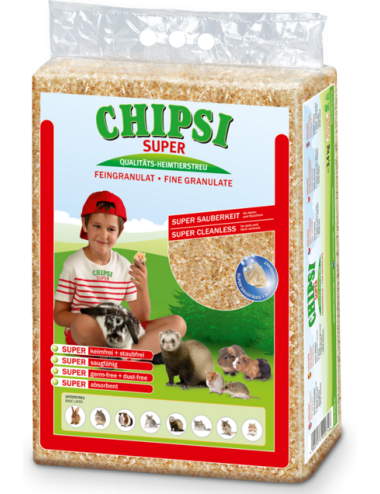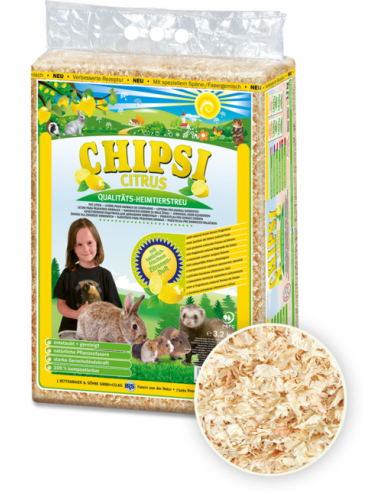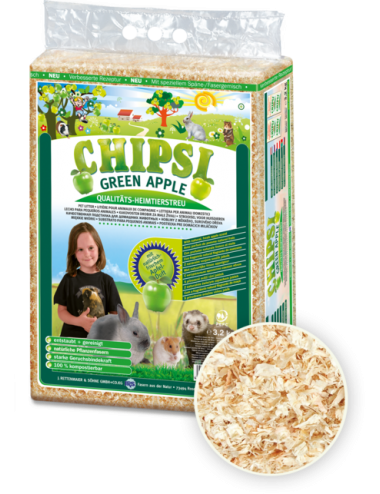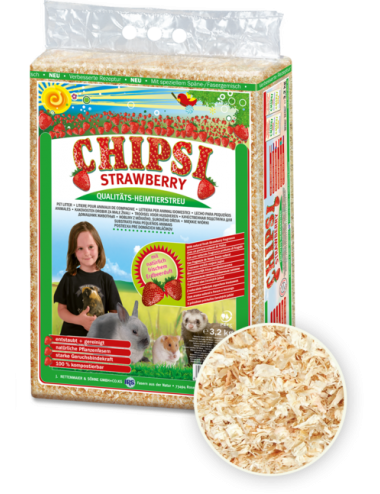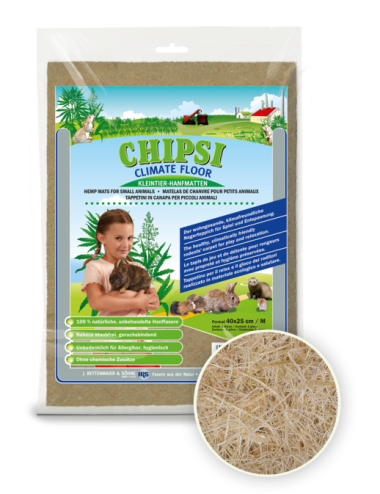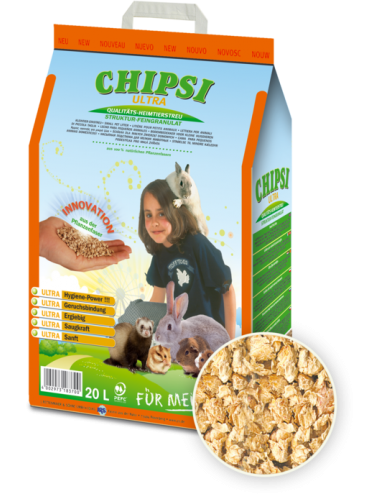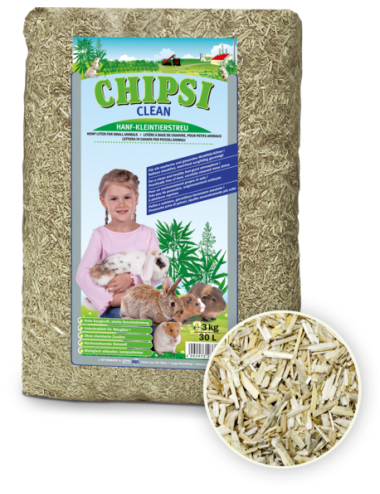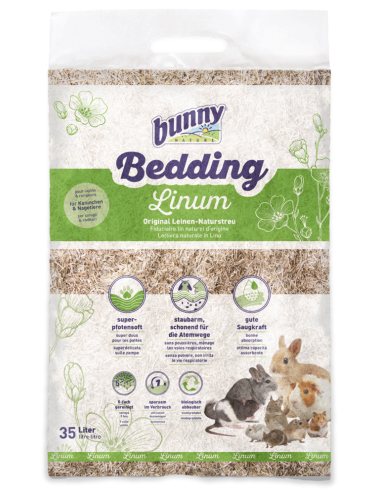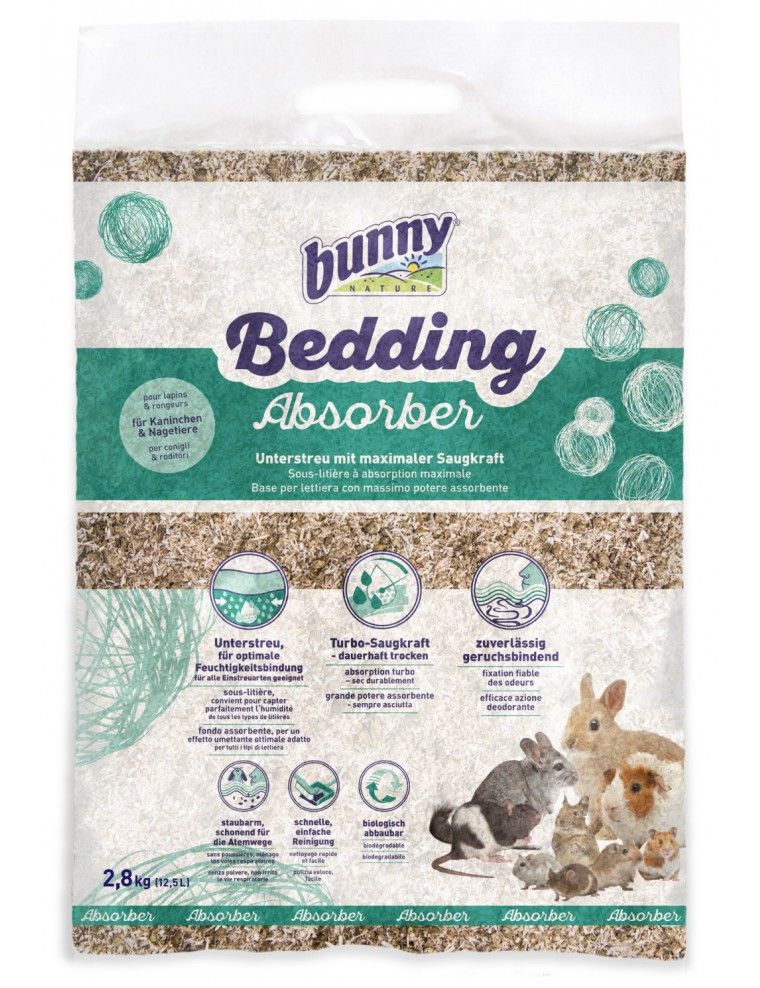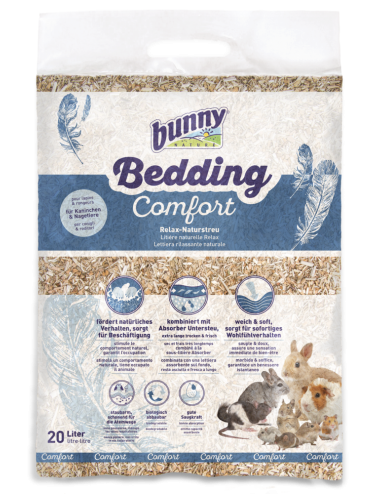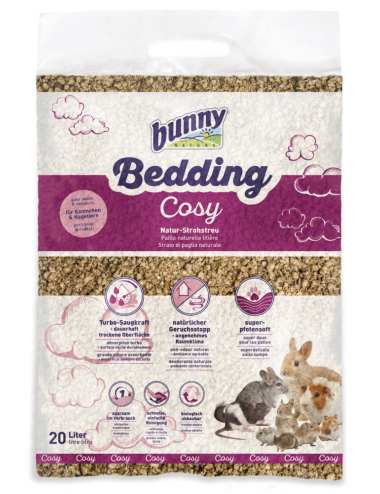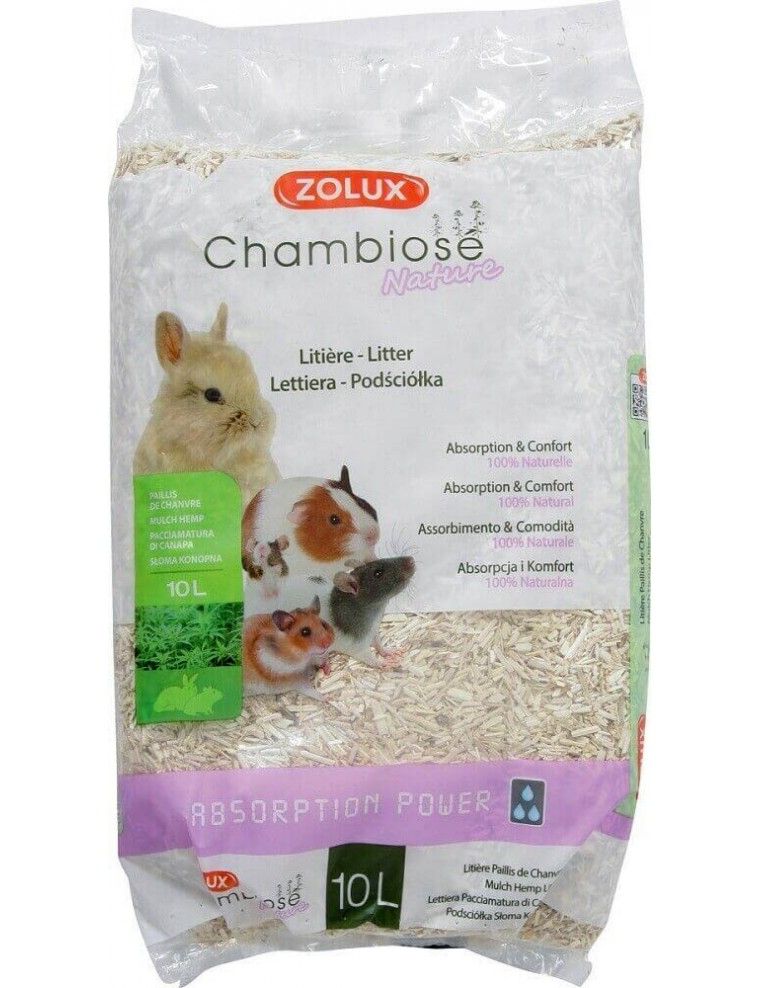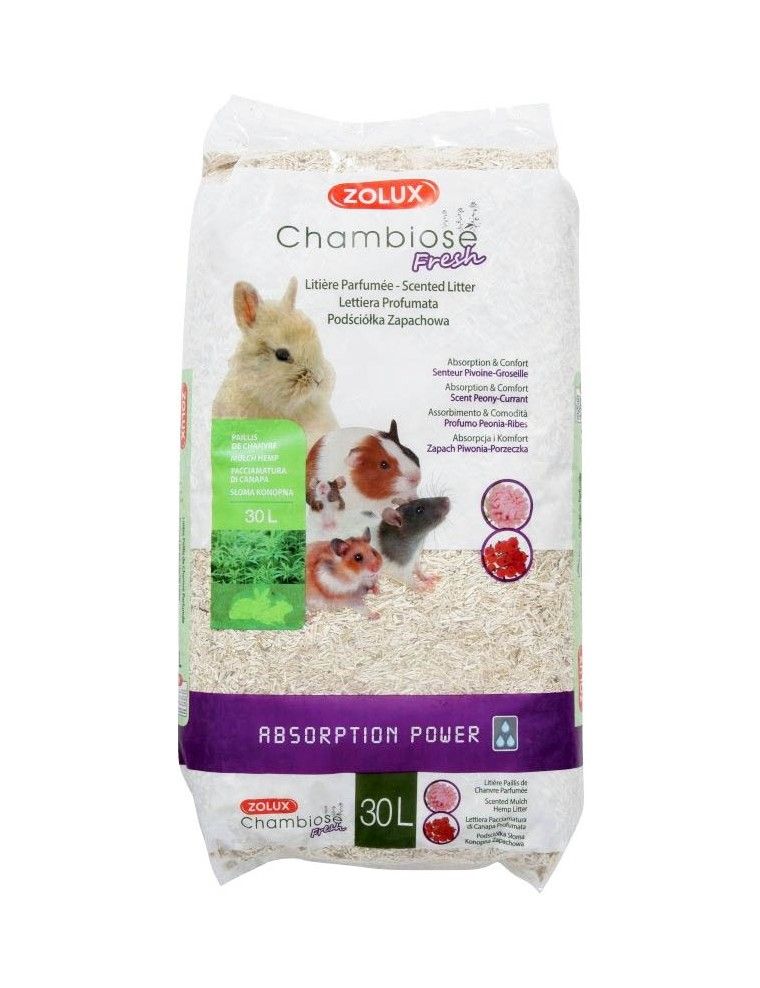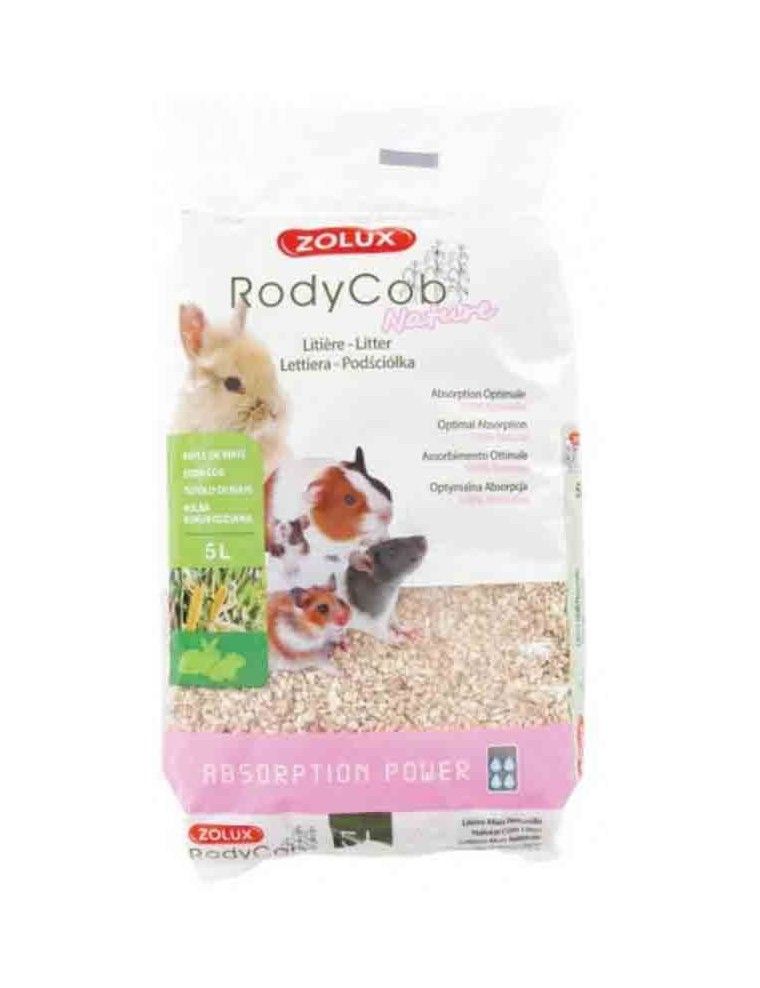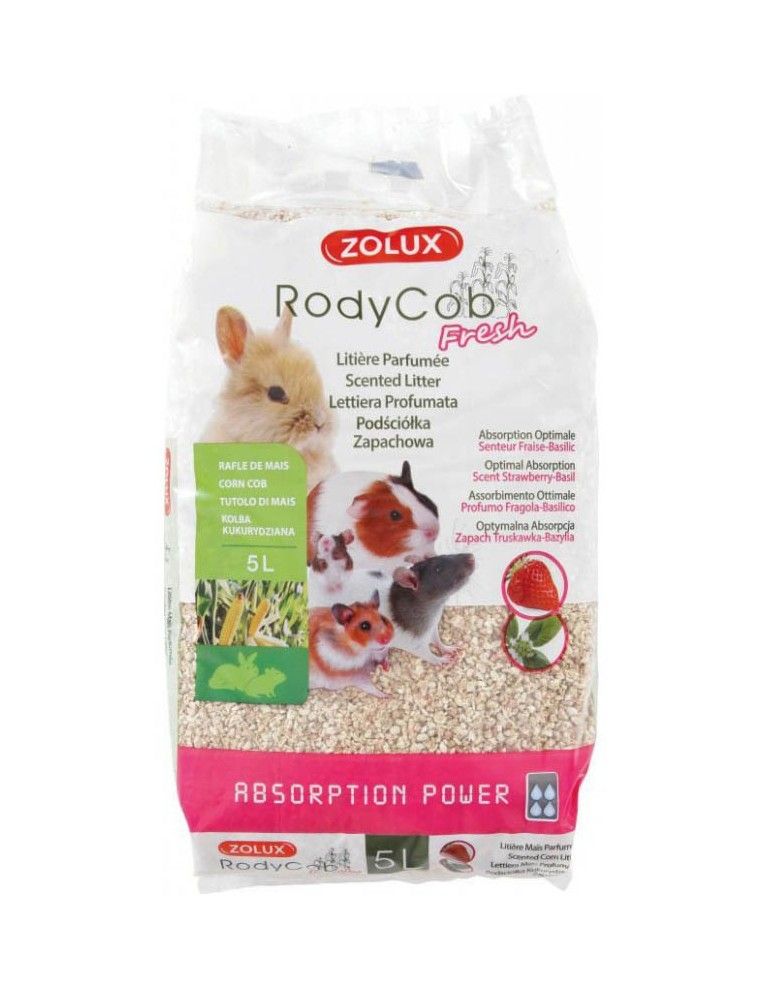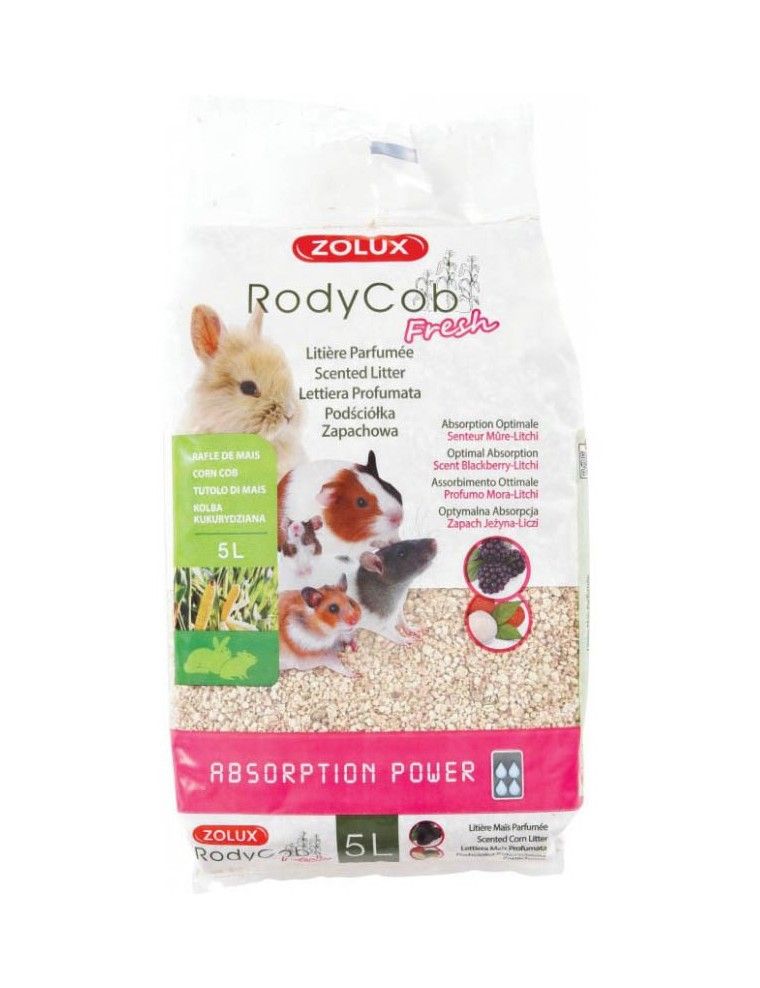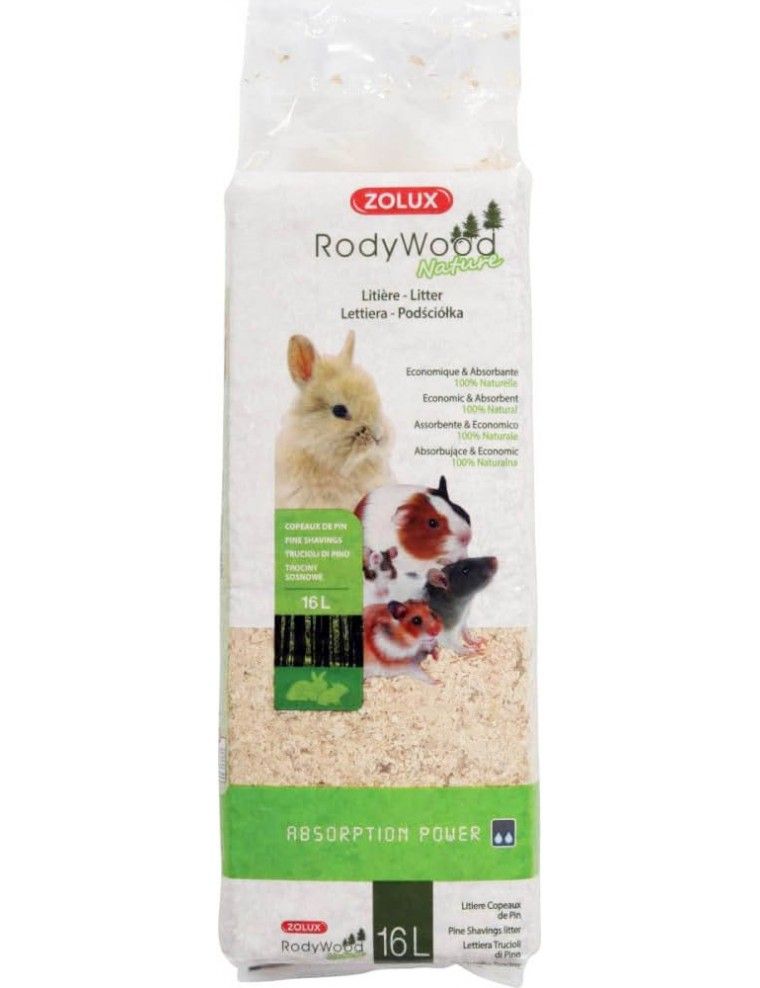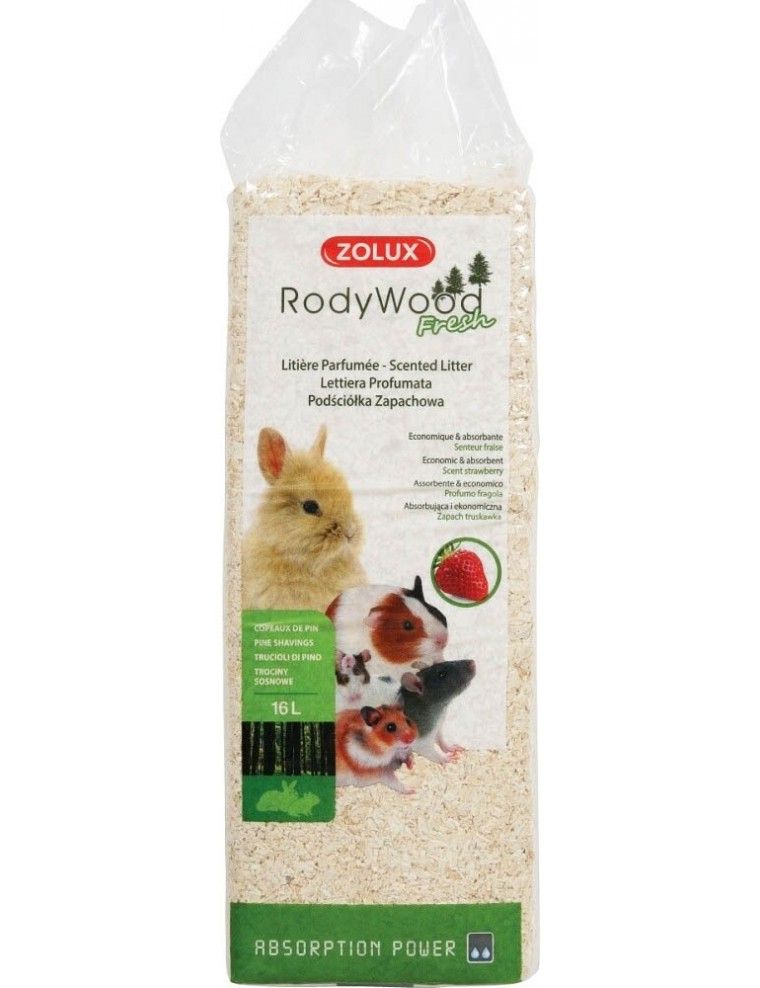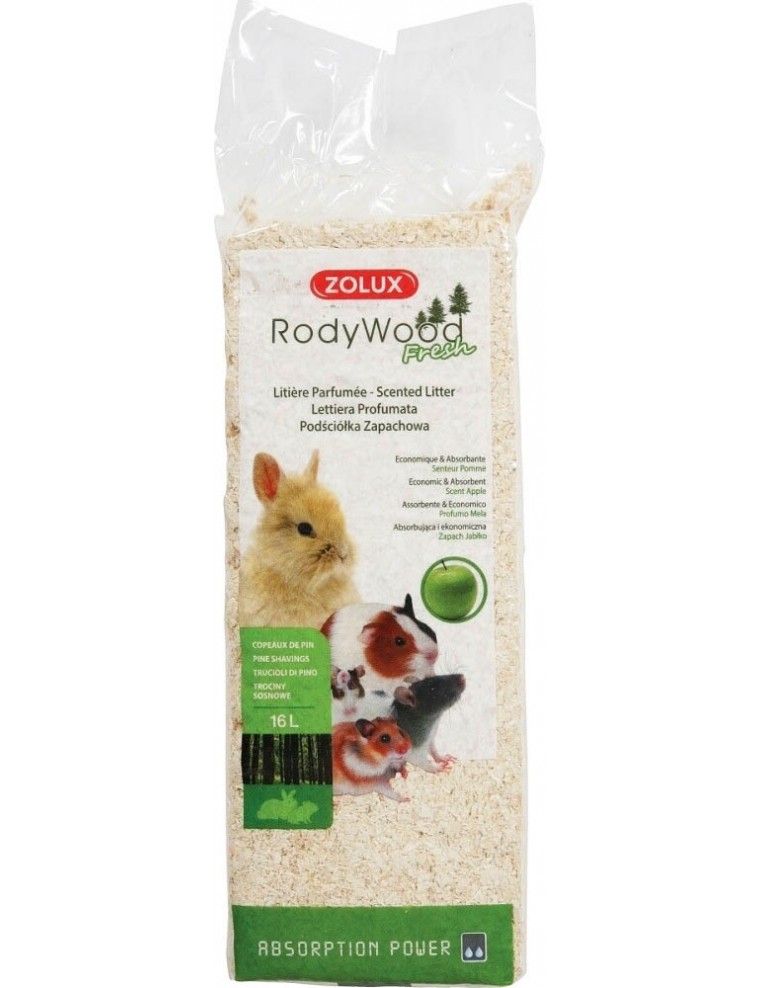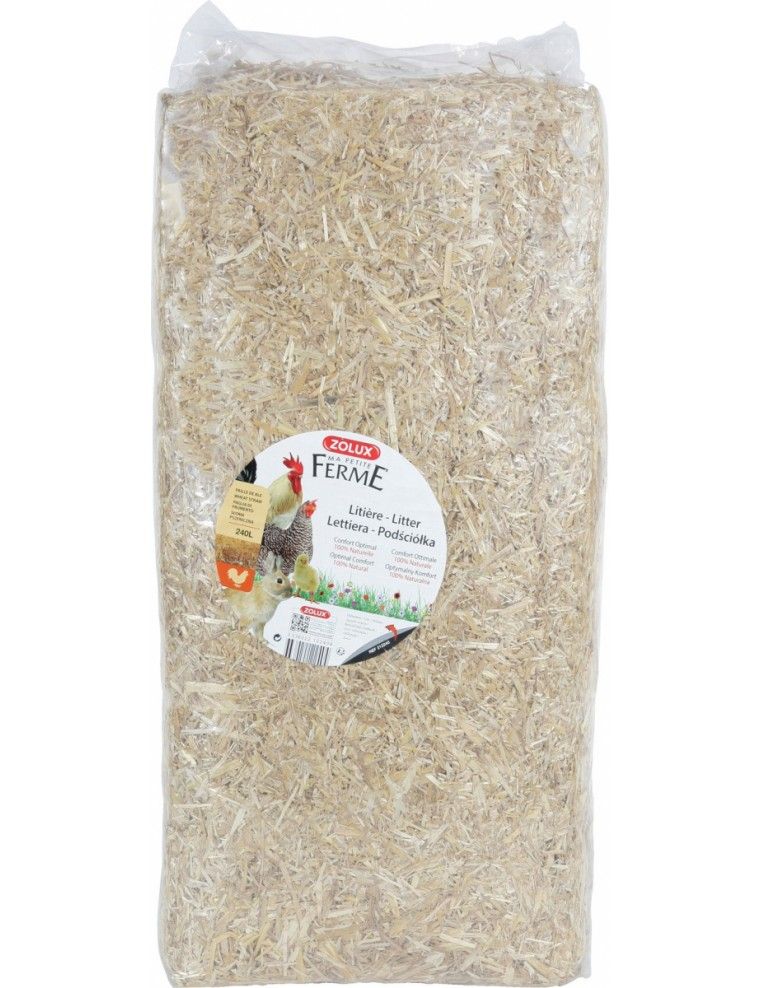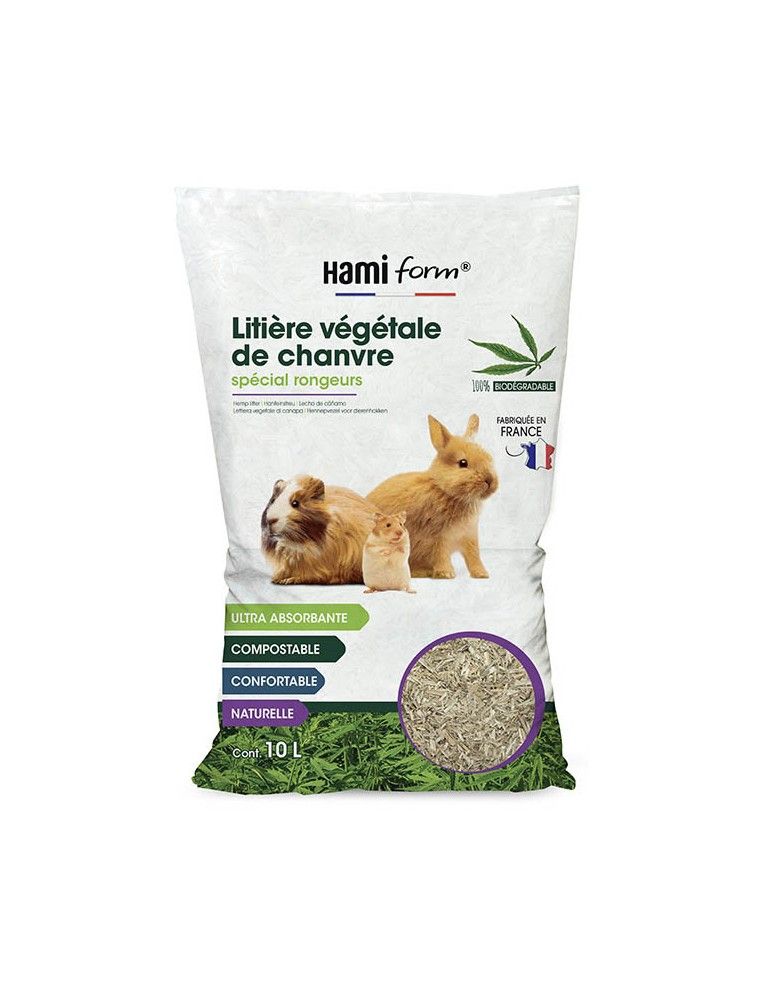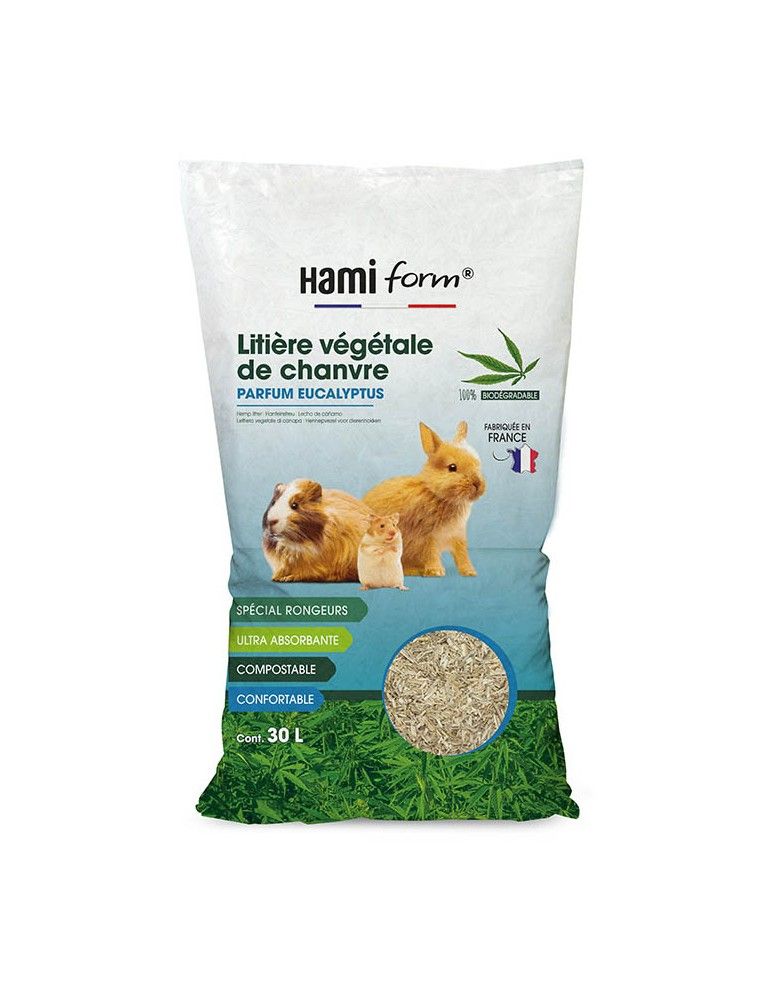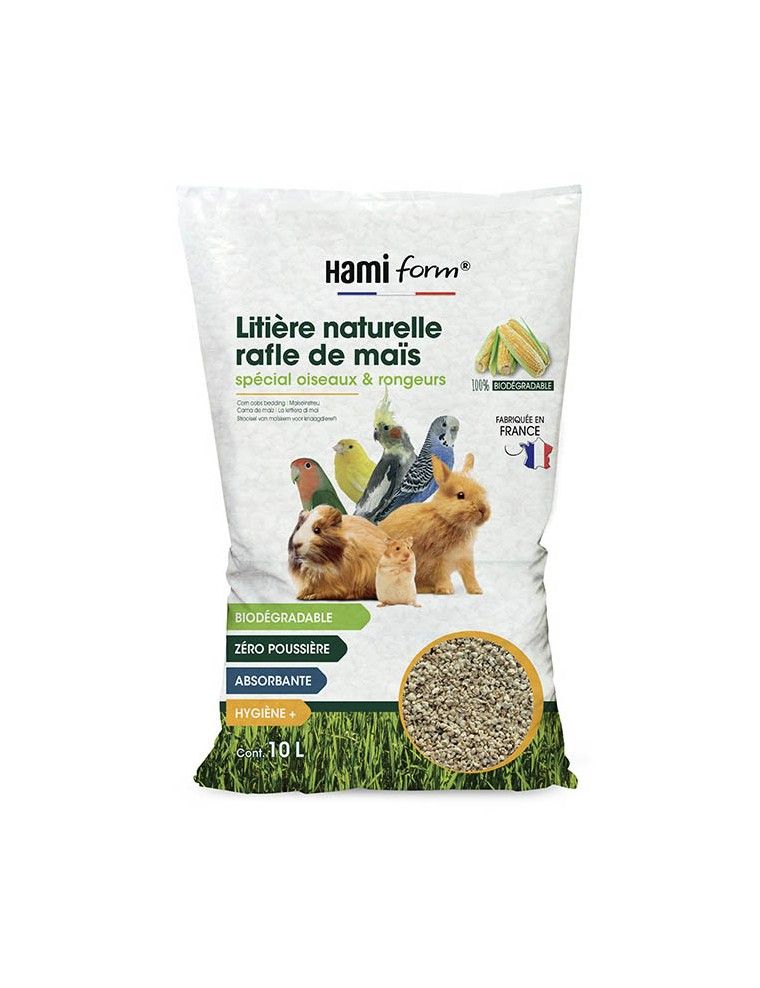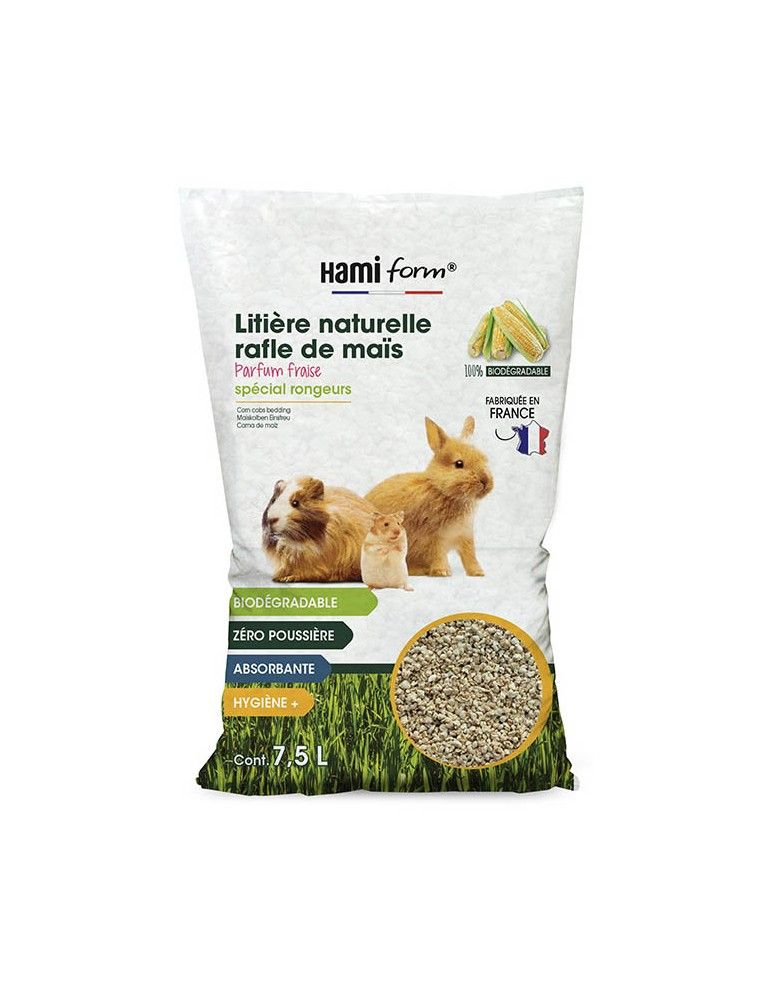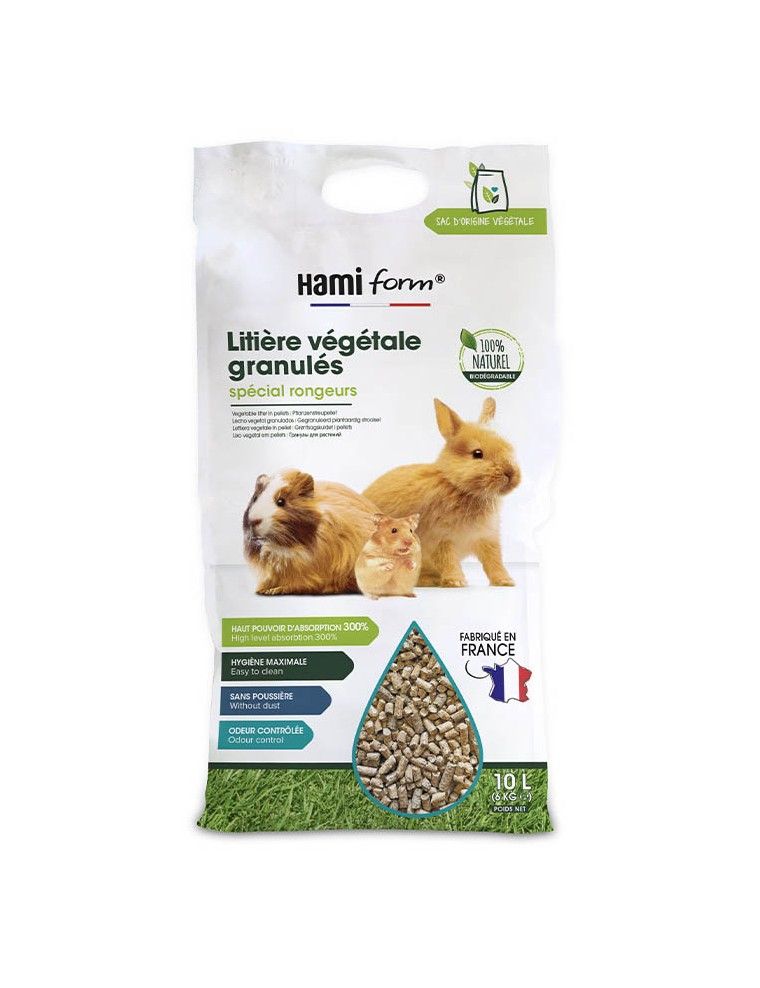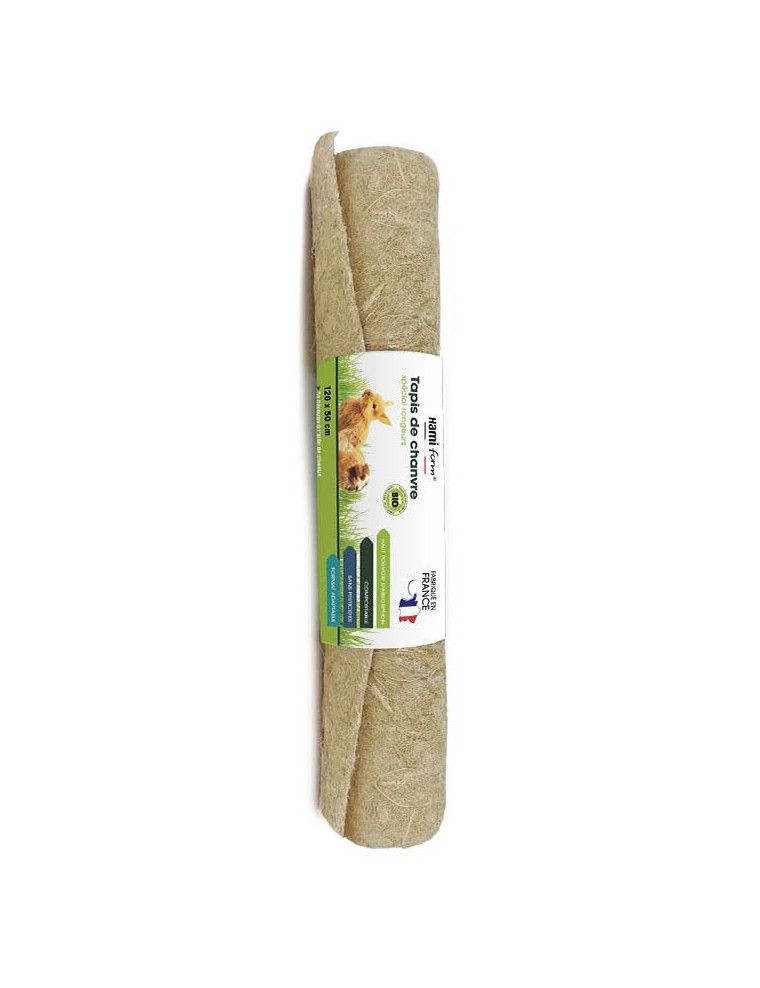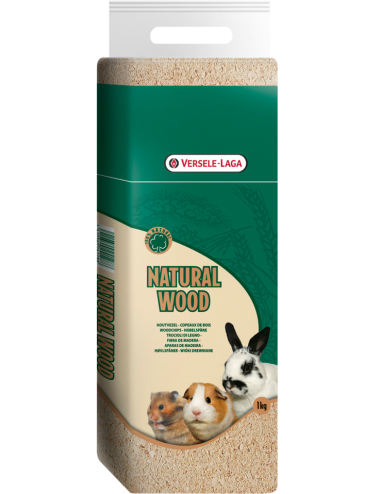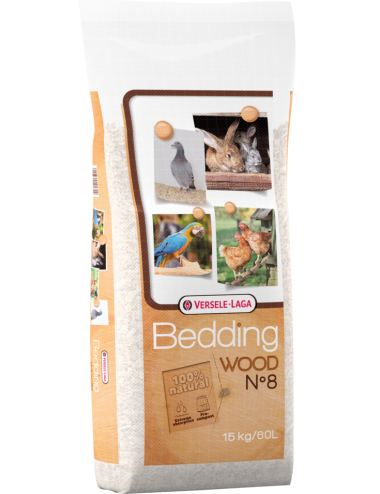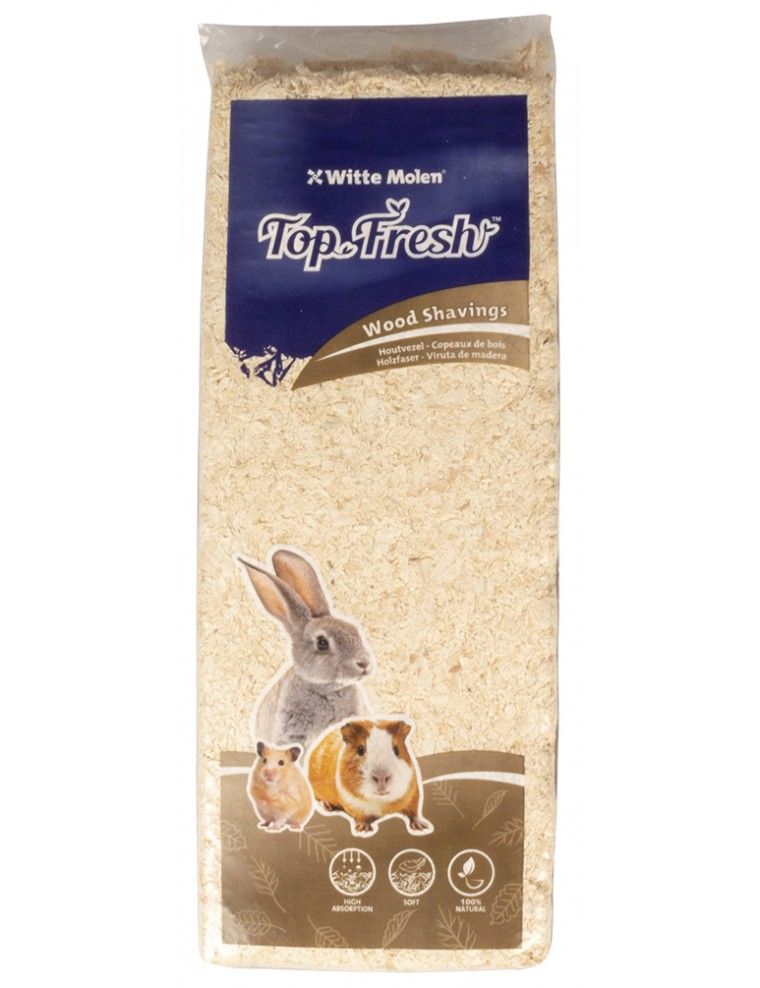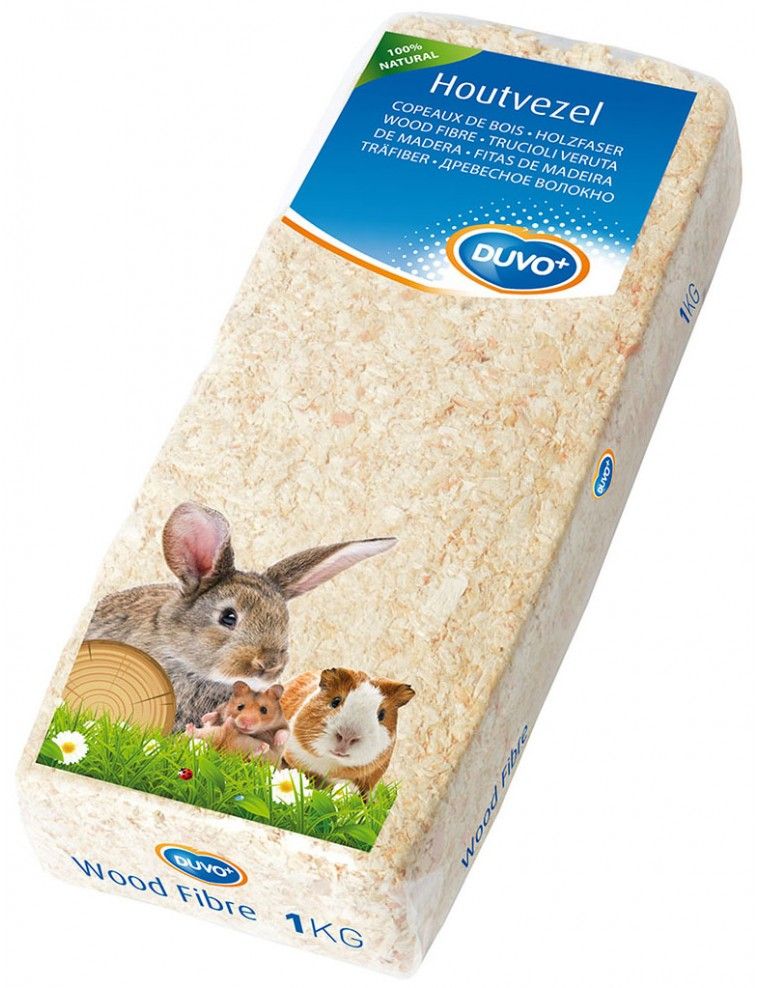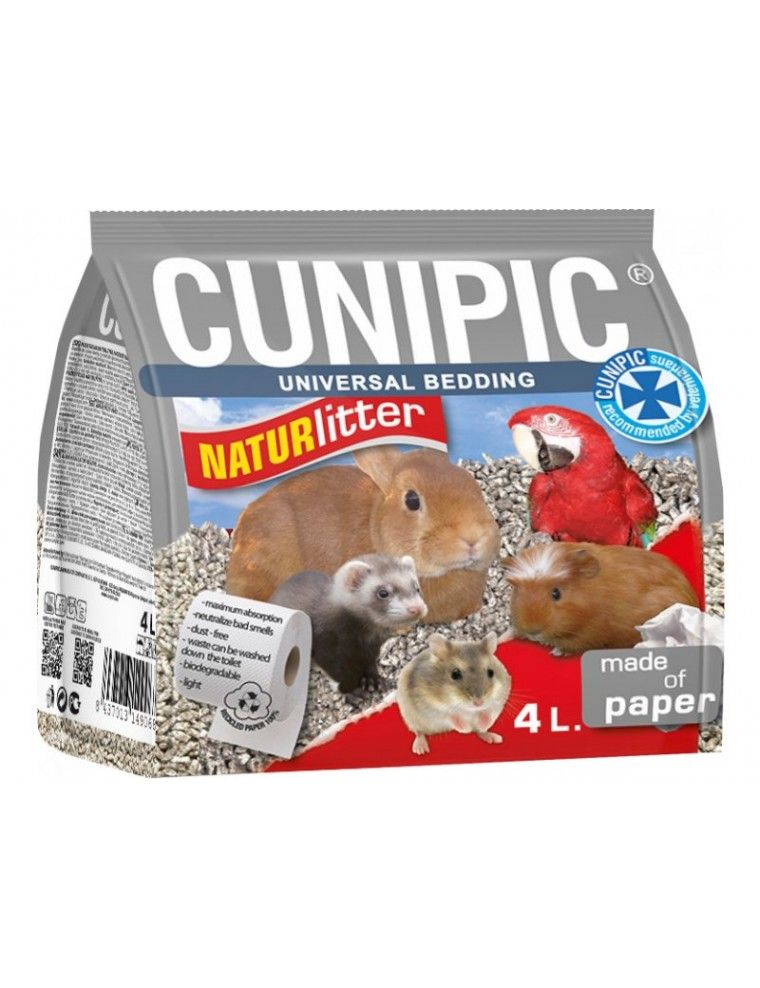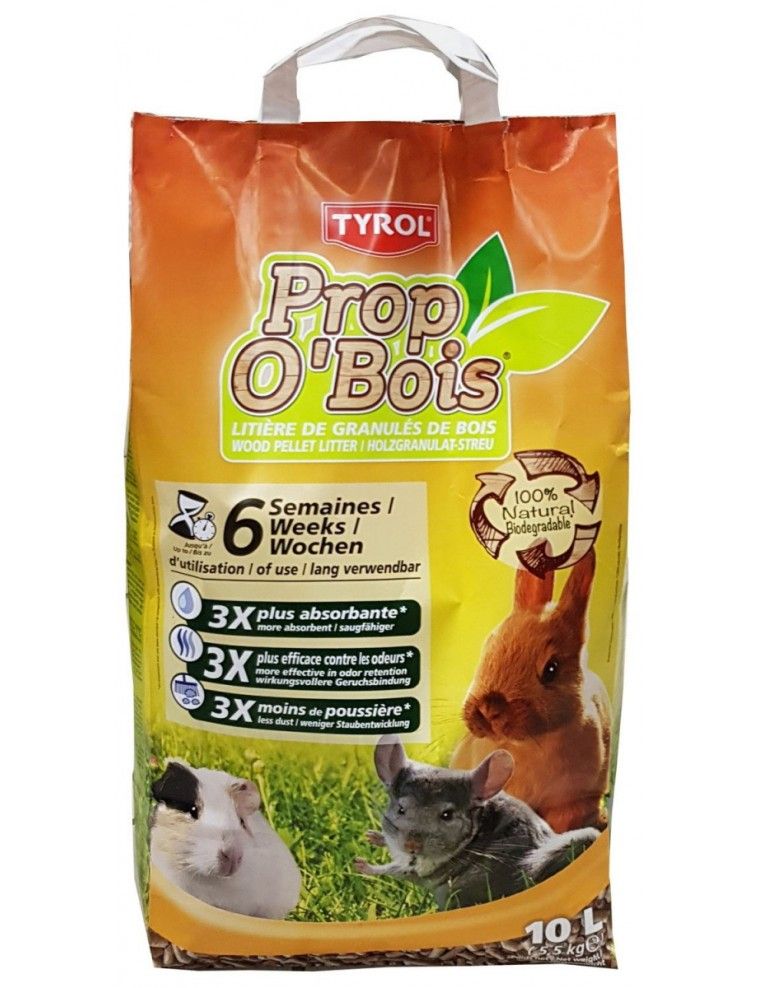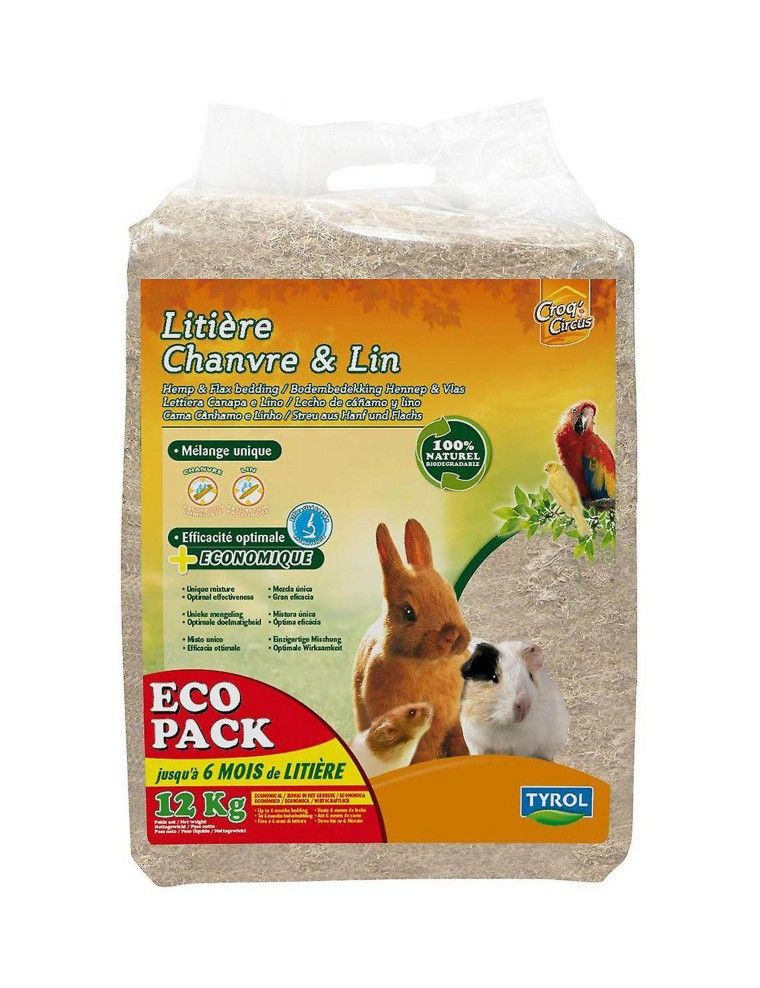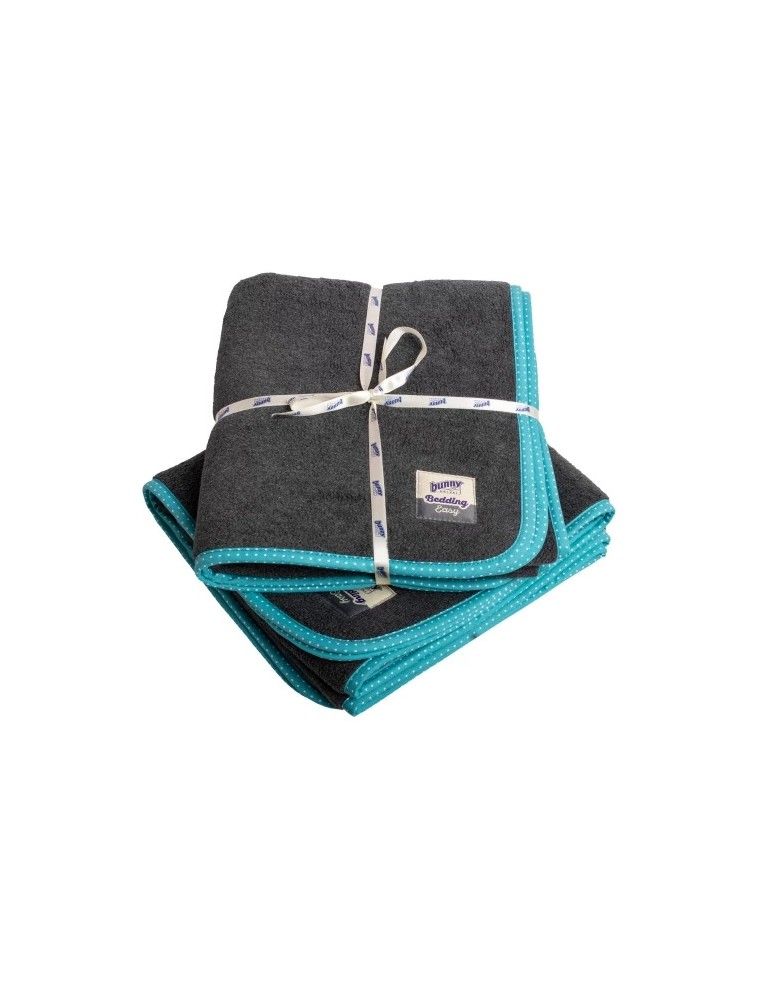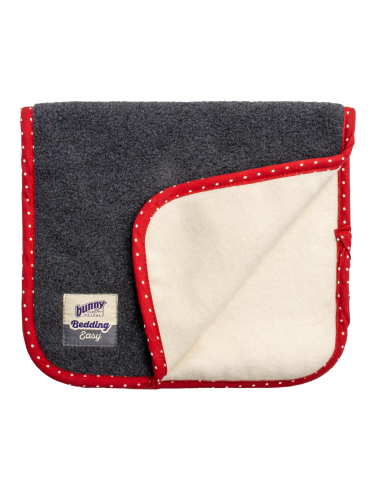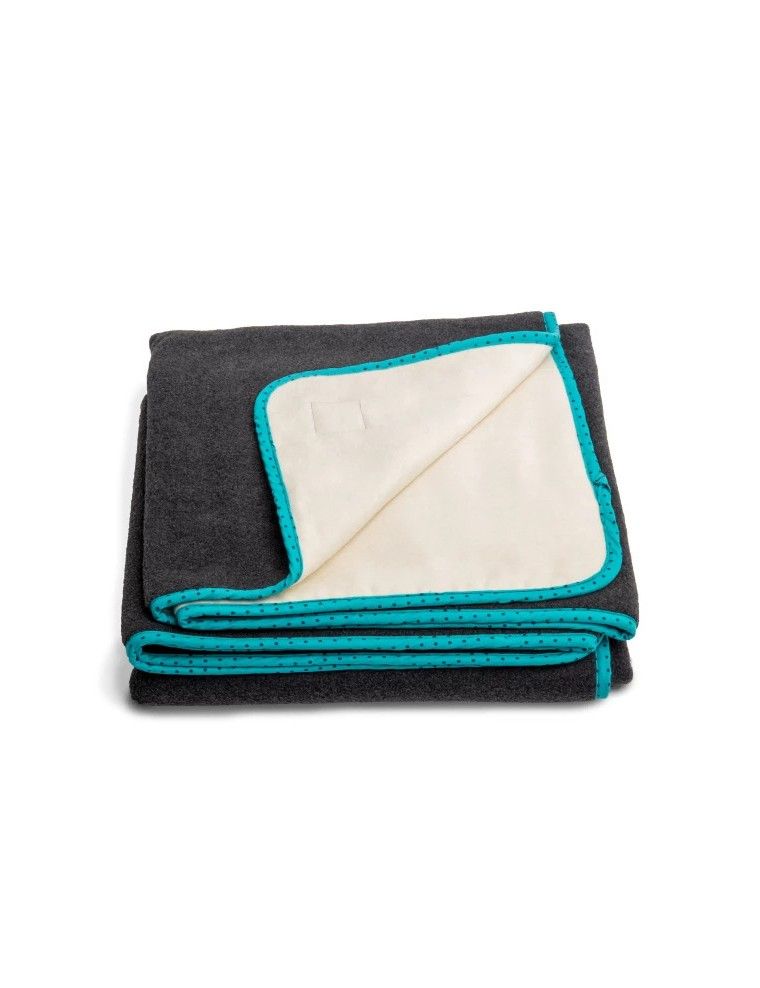- in replenishment
Litter Chinchilla
Comfort Litter: The Essential for Your Chinchilla
At Le Petit Rongeur, we know that the well-being of your chinchilla begins with litter adapted to its needs. With a range selected from the best brands like Bunny Nature , Chipsi , Cunipic , and many others, offer your little companion a clean and comfortable space.
Choosing the Perfect Litter: A Question of Comfort and Hygiene
Your chinchilla has very specific litter requirements. Cleanliness and comfort are the key words. It is crucial to opt for dust-free litter, which does not form clumps when wet, to avoid respiratory problems and ensure easy cleaning. Unscented wood chips are a preferred option, providing a natural and healthy environment. But at Le Petit Rongeur, we go beyond by offering a diversity of materials: hemp, linen, corn... Each with its advantages, ranging from optimal absorption to anti-odor properties, so that you can find the ideal litter according to the habits and preferences of your chinchilla.
Litter, More Than a Cage Bottom
Aware that chinchillas are clean by nature and appreciate a defined toilet area, we recommend a targeted approach. Rather than completely covering the floor of the cage, opt for litter in specific spaces, supplemented by hemp mats or soft blankets (always under supervision to avoid any risk of ingestion). This strategy not only makes cage maintenance easier but also contributes to the well-being of your chinchilla, providing him with comfort zones to rest and play in complete safety.
A Diverse Range for All Needs
Our selection includes litters of different materials to meet all needs: from natural and ecological wood shavings to corn pellets, including paper, straw, and linen. Each type of litter has been chosen for its specific qualities, whether it be absorption, odor control or softness to the touch. At Le Petit Rongeur, we understand the importance of variety and quality to guarantee the well-being of your chinchilla. This is why we collaborate with trusted brands, thus ensuring an offer that is both extensive and adapted to each small rodent. Choosing Le Petit Rongeur for your chinchilla's litter means choosing quality, diversity, and comfort. Our objective ? Providing you with everything needed to create a welcoming and healthy habitat for your furry friend.
Litter
Comfort Litter: The Essential for Your Chinchilla
At Le Petit Rongeur, we know that the well-being of your chinchilla begins with litter adapted to its needs. With a range selected from the best brands like Bunny Nature , Chipsi , Cunipic , and many others, offer your little companion a clean and comfortable space.
Choosing the Perfect Litter: A Question of Comfort and Hygiene
Your chinchilla has very specific litter requirements. Cleanliness and comfort are the key words. It is crucial to opt for dust-free litter, which does not form clumps when wet, to avoid respiratory problems and ensure easy cleaning. Unscented wood chips are a preferred option, providing a natural and healthy environment. But at Le Petit Rongeur, we go beyond by offering a diversity of materials: hemp, linen, corn... Each with its advantages, ranging from optimal absorption to anti-odor properties, so that you can find the ideal litter according to the habits and preferences of your chinchilla.
Litter, More Than a Cage Bottom
Aware that chinchillas are clean by nature and appreciate a defined toilet area, we recommend a targeted approach. Rather than completely covering the floor of the cage, opt for litter in specific spaces, supplemented by hemp mats or soft blankets (always under supervision to avoid any risk of ingestion). This strategy not only makes cage maintenance easier but also contributes to the well-being of your chinchilla, providing him with comfort zones to rest and play in complete safety.
A Diverse Range for All Needs
Our selection includes litters of different materials to meet all needs: from natural and ecological wood shavings to corn pellets, including paper, straw, and linen. Each type of litter has been chosen for its specific qualities, whether it be absorption, odor control or softness to the touch. At Le Petit Rongeur, we understand the importance of variety and quality to guarantee the well-being of your chinchilla. This is why we collaborate with trusted brands, thus ensuring an offer that is both extensive and adapted to each small rodent. Choosing Le Petit Rongeur for your chinchilla's litter means choosing quality, diversity, and comfort. Our objective ? Providing you with everything needed to create a welcoming and healthy habitat for your furry friend.
- in replenishment
- 3 in stock
- 2 in stock
- 8 in stock
- 6 in stock
- in replenishment
- in replenishment
- in replenishment
- 2 in stock
- in replenishment
- 5 in stock
- 3 in stock
- 5 in stock
- 8 in stock
- 6 in stock
- 4 in stock
- 4 in stock
- 4 in stock
- 5 in stock
- 1 in stock
- 7 in stock
- 3 in stock
- 4 in stock
- 3 in stock
- 9 in stock
- 9 in stock
- 9 in stock
- 2 in stock
- 10 in stock
- 8 in stock
- 15 in stock
- in replenishment
- in replenishment
- in replenishment
- in replenishment
- in replenishment
Questions / Réponses
La litière la plus adaptée pour les chinchillas est celle qui assure une absorption efficace et minimise la poussière, pour protéger leurs voies respiratoires sensibles. Les litières à base de chanvre ou de lin sont idéales car elles sont absorbantes, pratiquement sans poussière, et entièrement naturelles, ce qui réduit le risque d'irritation respiratoire et cutanée. Évitez les litières à base de copeaux de bois aromatiques, comme le cèdre ou le pin, qui peuvent être toxiques pour les chinchillas.
Choisir une litière sans poussière est crucial pour les chinchillas, car ils ont des voies respiratoires très sensibles. Une litière poussiéreuse peut provoquer des problèmes respiratoires, des allergies, et même des complications pulmonaires chez ces animaux. Une bonne litière sans poussière contribue à maintenir un environnement sain dans la cage et à prévenir ces risques pour la santé.
Il est déconseillé d'utiliser des litières agglomérantes pour les chinchillas. Ces types de litières peuvent coller au pelage dense du chinchilla et, s'ils sont ingérés pendant le toilettage, peuvent causer des blocages intestinaux. Privilégiez les litières naturelles non agglomérantes, qui sont plus sûres pour leur système digestif et leur pelage.
Pour changer la litière d'un chinchilla, commencez par retirer votre chinchilla de la cage. Ensuite, enlevez toute la litière souillée et les déchets, nettoyez la cage avec un désinfectant doux adapté aux animaux, et séchez bien. Remplissez le fond de la cage avec une couche fraîche de litière adaptée. Un nettoyage complet devrait être effectué au moins une fois par semaine pour maintenir un environnement propre et sain.
Une couche de 3 à 5 cm de litière est généralement suffisante pour absorber l'urine et couvrir le fond de la cage d'un chinchilla. Cela permet une absorption efficace tout en étant économique et facile à nettoyer lors du changement régulier de la litière. Assurez-vous que la litière est répartie uniformément pour éviter les zones dénudées.
Bien que le papier journal soit une option économique et recyclable, il n'est pas l'option la plus adaptée pour les chinchillas. Le papier journal manque d'absorption nécessaire et peut être poussiéreux ou encré, ce qui n'est pas idéal pour les chinchillas. Préférez des options de litière spécifiques qui offrent une meilleure absorption et qui sont plus sûres pour leur santé.
La litière d'un chinchilla doit être partiellement renouvelée quotidiennement pour enlever les zones souillées, avec un changement complet de la litière effectué au moins une fois par semaine. Cette routine aide à contrôler les odeurs, maintient la cage propre, et prévient les problèmes de santé liés à l'hygiène.
La litière de bambou est une option écologique et durable pour les chinchillas, offrant une bonne absorption et étant généralement faible en poussière. Cependant, comme avec tout nouveau type de litière, il est important de surveiller votre chinchilla pour toute réaction négative et de s'assurer que la litière ne pose pas de risque d'ingestion ou d'enchevêtrement dans leur fourrure dense.

